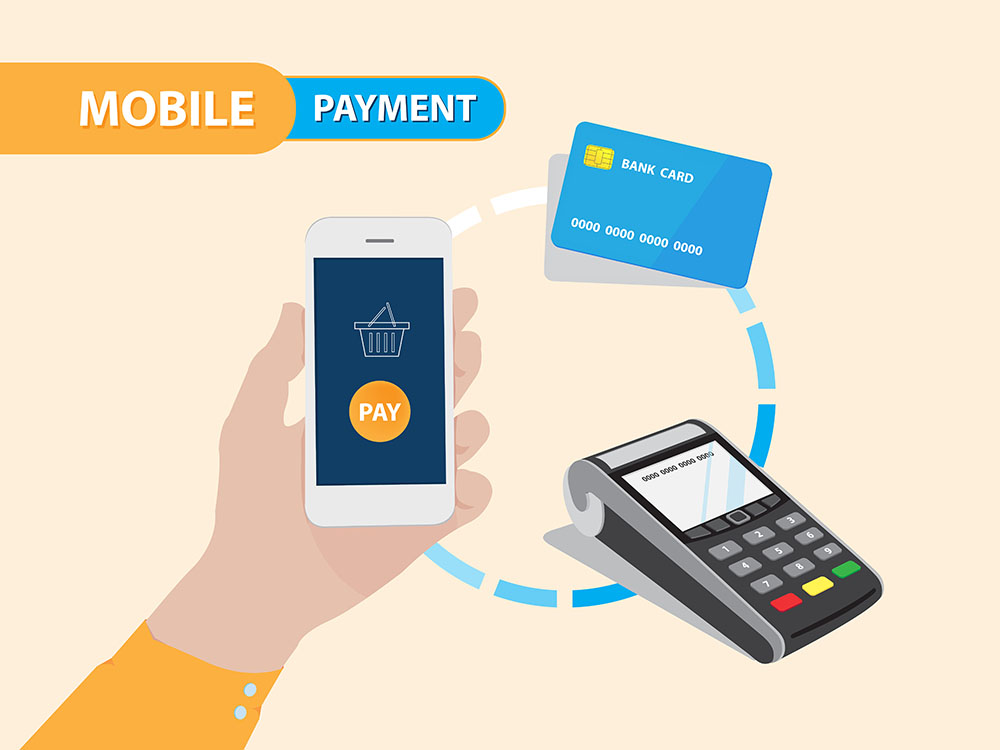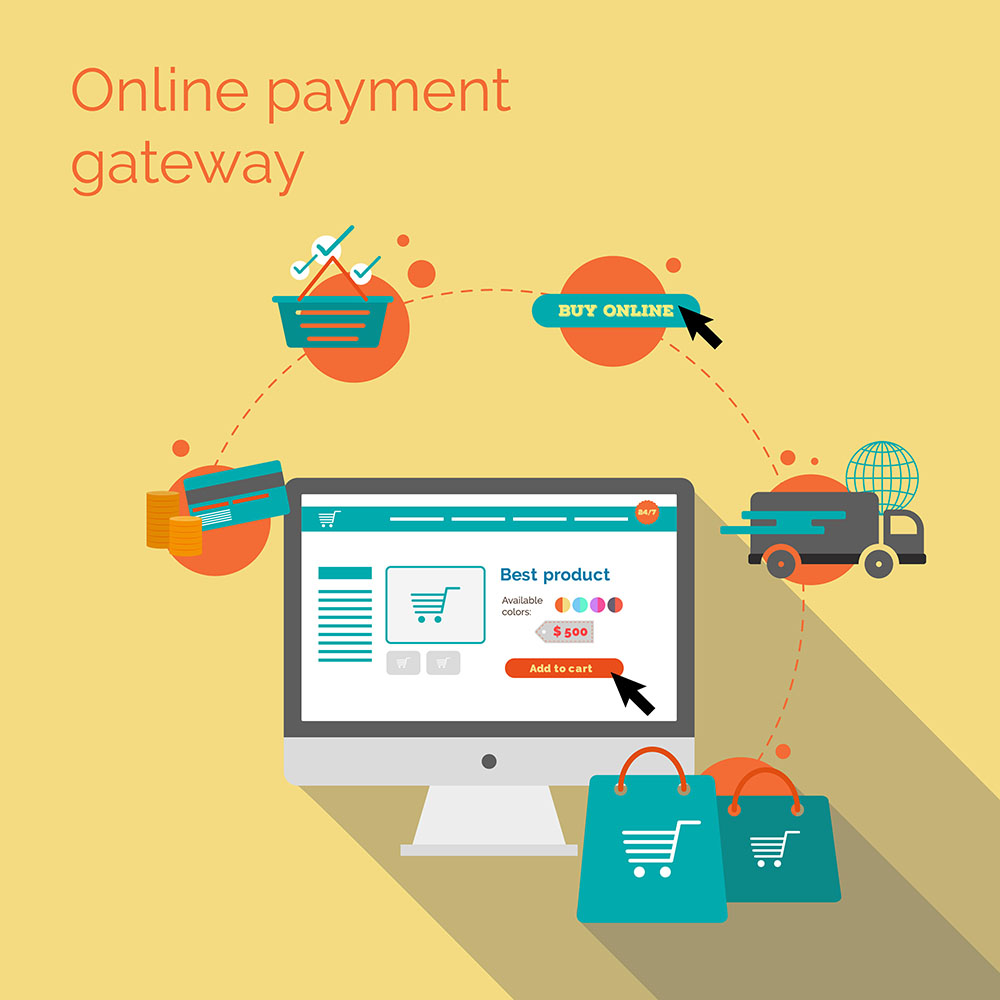Today’s world continues to become increasingly complex. Businesses striving for success are required to understand a variety of topics to thrive in the world of business. Among these topics, understanding the difference between a payment gateway vs a payment processor is crucial and deserves special attention.
Payment gateways enable merchants to accept payments from debit and credit cards from customers via an online portal, a web page and via Near Field Communication (NFC) technology. On the other hand, a payment processor is a third party service provider company or financial institution that provides a payment gateway as a service to merchants to support their businesses..

Let’s continue to dive deeper into the topic of a payment processor vs a gateway in greater detail.
What is a Payment Gateway?
Payment gateways are a technology usually provided through a merchant service that facilitates the transfer of funds at a point of sale. Payment gateways link, in a secure and efficient way, payment information between the customer and their bank, a merchant business and their merchant account, and other relevant, participating financial institutions.
Payment gateways act as interfaces between a merchant business and a payment processor through various sales channels available to businesses today. These sales channels typically include a merchant business’s website, phone or mobile app, or a point-of-sale (POS) system. By leveraging the power of today’s technology it is possible for businesses to accept and process payments electronically from credit cards, debit cards, and digital wallets.

What are the Benefits of a Payment Gateway?
Payment gateway technology and its benefits are as follows:
- Enhanced Protection Through Encryption: Payment gateways utilize encryption to securely transmit sensitive customer, financial, and sales information. Encryption, the process by which information is transformed from plain, readable text into unreadable text known as ciphertext, secures sensitive information for purposes of transmission & storage, of data ensuring protection from unauthorized parties and unauthorized access during the sales transaction.
- Assurance Through Authorization: When sale transactions are initiated and submitted to a payment gateway, the transaction details are transmitted to a payment processor for approval. Through this process, a payment processor is able to then communicate the sale transaction details to an issuing bank or a credit card company in order to obtain authorization for the transaction. The purpose of authorization is to obtain approval, verifying that the customer account being used in the sales transaction has the sufficient amount of funds or available credit to complete the transaction and close out the sale.
- Transaction Confirmation: When a payment processor has obtained the needed approval for the transaction, the payment gateway is prompted to send out a confirmation to the merchant business and the purchasing customer. The information received by merchant business signals that the sales order fulfillment process may be completed, providing the purchasing customer with a receipt of the transaction.
- Fraud Detection & Prevention: Payment gateway systems implement advanced monitoring and fraud protection security measures. These measures are designed to proactively detect and protect merchant businesses and their customers from fraudulent transactions, bad faith actors, and potential financial losses due to fraud.
- Support for Multiple Payment Methods: Payment gateways support a wide range of payment methods that include credit cards, debit cards, and digital wallets. With this versatility, merchant businesses are able to attract a diverse base of customers with different preferences, thus increasing their brand visibility and market share.

Payment gateways are the bridge that securely connects merchants, customers and financial institutions in the facilitation of transmitting of secure payment data during a sale.
The Importance of Secure Payment Processing
Payment gateways are important because it allows secure payment processing. Secure payment processing is vital in today’s world as the explosive growth of the digital economy continues to accelerate. Secure payment processing ensures enhanced security when handling sensitive financial information and ensuring the safety of funds transmitted between customers, merchant businesses and financial institutions.

Taking into consideration of secure payment processing via payment gateways, several factors can be linked to its importance:
- Consumer Trust and Confidence: Secure payment processing builds and maintains customer trust in the ability of a merchant business to competently protect sensitive financial information. Customers who feel confident and secure that their financial information is being handled appropriately with privacy and security top of mind are many times more likely to complete their purchases and become lifetime customers with repeat sales.
- Data Protection and Privacy: Secure payment processing involves implementing measures such as encryption, tokenization, and secure authentication to protect sensitive financial data from unauthorized access or theft. These measures help ensure the privacy of customer information and reduce the risk of data breaches.
- Fraud Prevention: Secure payment processing includes advanced fraud detection and prevention mechanisms to identify and block potentially fraudulent transactions. These systems help protect both merchants and customers from financial losses and reputational damage caused by fraud.
- Regulatory Compliance: Merchants and payment processors must adhere to industry security standards and regulations, such as PCI DSS, to ensure the secure handling of payment information. Secure payment processing helps businesses comply with these requirements and avoid penalties associated with non-compliance.
- Business Reputation: A secure payment processing infrastructure is essential for maintaining a positive business reputation. Data breaches or incidents of fraud can have severe consequences for a business’s brand image, potentially leading to loss of customers, negative publicity, and reduced revenue.
- Minimizing Financial Risks: Ensuring secure payment processing minimizes the risk of financial losses due to fraud, chargebacks, or data breaches.
- Global Interoperability: Secure payment processing enables businesses to accept payments from customers worldwide, as it adheres to international security standards and best practices. This interoperability allows merchants to expand their market reach and tap into new revenue streams.
In summary, secure payment processing is crucial for protecting sensitive financial data, building consumer trust, and maintaining a strong business reputation. It also helps businesses comply with industry security standards and regulations, minimize financial risks, and enable global interoperability, contributing to the overall success and growth of a company.
Pros and Cons of Using Payment Gateways
Here are additional pros and cons to payment gateways that should be considered:
Businesses
Pros:
- Improved Customer Experience
- Data Security and Regulatory Compliance
- Multiple Payment Option Offerings
- Access to Global Markets
- Automate Manual Processing
Cons:
- High Fees and Costs
- Incompatibility and Integration Issues
- Potential System Downtime
Customers
Pros:
- Convenience
- Security
- Multiple Payment Options
Cons:
- Data Privacy Concerns
- Technical Issues
Ultimately through payment gateways, businesses gain the flexibility to provide customers with a customizable and secure way to purchase goods and services.

Payment Processor vs. Gateway
The importance of payment gateways are key to the success of today’s business. As a crucial part of the electronic payment ecosystem, payment gateways serve as the bridge that securely connects merchants, customers, credit card companies and financial institutions in the process of transmitting secure payment data during a sale. Moreover, payment processors play a greater role in the electronic payment ecosystem.
What is a Payment Processor?
Payment processors are financial institutions or third-party hardware software companies that facilitate the transfer of funds on behalf of merchant businesses whenever a sale is initiated through a payment gateway. Payment processors serve as intermediaries or middle parties in the payment processing ecosystem, facilitating communication of transaction information between financial institutions, credit card companies, merchant businesses and customers.
Payment processors are the main drivers behind secure payment processing. Payment processors help businesses to achieve greater profitability via visibility into real time reporting analytics, and integrations. When businesses choose to partner with the right payment processors, the ability to meet greater profitability, sustainability, and customer satisfaction objectives becomes better accomplished.
Security Considerations for Payment Processors vs. Gateways
Security is of paramount importance for payment processors, as they handle the transfer of funds and sensitive financial data between customers, merchants, and financial institutions. Here are some key security considerations for payment processors:
- Compliance with Payment Card Industry Data Security Standard (PCI DSS): Payment processors must adhere to the PCI DSS, which is a set of security standards aimed at protecting cardholder data and reducing the risk of data breaches. Compliance with these standards includes maintaining a secure network, protecting sensitive data, managing vulnerabilities, implementing strong access control measures, and regularly monitoring and testing networks.
- Encryption and secure data transmission: Payment processors use encryption protocols, such as Secure Sockets Layer (SSL) or Transport Layer Security (TLS), to securely transmit sensitive payment information between parties involved in a transaction. These protocols ensure that data remains protected from unauthorized access or interception during transit.
- Tokenization: To minimize the risk of data breaches, payment processors often implement tokenization, which replaces sensitive payment information with unique, non-sensitive tokens. These tokens can be used for transaction processing without exposing the original payment data.
- Fraud detection and prevention: Payment processors employ advanced algorithms, artificial intelligence, and machine learning techniques to identify and prevent fraudulent transactions. These systems help protect both merchants and customers from financial loss due to fraud by detecting suspicious activities and flagging or declining potentially fraudulent transactions.
- Secure customer authentication: To enhance transaction security, payment processors may implement additional customer authentication measures, such as two-factor authentication (2FA) or 3D Secure. These methods require customers to provide extra verification, like a one-time password or fingerprint, to confirm their identity during the transaction process.
- Regular security updates and vulnerability management: Payment processors must actively monitor for new threats and vulnerabilities, applying necessary security patches or updates to their systems. Regular penetration testing and vulnerability assessments help identify potential weaknesses and ensure that the payment processing systems remain secure.
- Access control and monitoring: Strong access control measures, such as unique logins, complex passwords, and restricted access to sensitive data, help prevent unauthorized access to payment processor systems. Monitoring user activities and maintaining detailed logs can assist in identifying and addressing potential security issues.
In summary, payment processors must prioritize security by adhering to industry-standard practices, continuously updating their systems, and implementing robust fraud detection and prevention measures. These efforts help protect sensitive financial information and maintain the trust of customers and merchants alike in the electronic payment ecosystem.
Choosing the Right Payment Processor vs Gateway
There are many factors to consider when choosing the right payment processor. Some of these factors are discussed in detail below:
- Compatibility with your business model: A payment processor and gateway needs to be able to support businesses and their specific goals and objectives. Payment processing features such as online transactions, in-person transactions, recurring billing, international transactions, multi-currency support, tailored to industry-specific regulations are just some of the considerations that need to be taken into account when evaluating compatibility with your business model.
- Advanced Integration With Payment Systems: Payment processor and gateways offer Application Programming Interfaces or APIs and Software Development Kits or SDK. APIs and SDKs, and plugins that allow seamless integration to your existing business infrastructure enable merchant businesses the ability to integrate payment gateways with a business website, phone or mobile app, or a POS system.
- Supported payment methods: With the right payment processor and gateway, businesses have access to the support and networks of a wide range of payment methods, including credit cards, debit cards, and digital wallets.The right payment processors and gateway empower businesses to cater to diverse customer preferences expanding their customer base.
- Security and compliance: Businesses must ensure that their payment processor and gateway adhere to industry security standards, such as PCI DSS, as well as local, state, federal, regional and global regulations for their specific industry. Payment processors offer features such as encryption, tokenization, and fraud detection and prevention to protect sensitive financial data.
- Pricing and fees: Depending on the size of the businesses and whether or not that business is deemed high-risk or new, applying merchant businesses may find it difficult being approved by a payment processor without high fees or rigid pricing structures.These fees include transaction fees, monthly fees, setup fees, and any additional charges. Look for a solution with a transparent pricing structure that aligns with your business’s budget and revenue model.
- Scalability: Payment processors and gateway needs to accommodate your business’s growth, level of transactions, and any changes in the transaction volume. By choosing the right payment processor and gateway, merchants can guarantee that they are able to scale their services as their business expands to new markets or experiences increased sales.
- Customer support: Evaluating the quality of customer support provided by the payment processor and gateway is crucial. Businesses should look for a provider with a responsive and knowledgeable support team that can assist with technical issues, transaction disputes, or other concerns.
- Reporting and analytics: Great payment processors and gateways offer robust reporting and analytics tools to help you track your transactions, identify key trends, and optimize your business operations for scalability and growth.
- Reliability and uptime: Businesses need to be assured that the payment processor and gateway that they have chosen has a proven track record of reliability and high uptime. A reliable payment processor and gateway will minimize the risk of downtime, which can negatively impact sales and customer satisfaction.
- User experience: Consider the user experience provided by a payment processor and gateway, both for your customers and your team. Look for a solution with an intuitive interface, streamlined checkout process, and easy-to-use management tools.
Bankful, the Payment Engine
Bankful’s platform offers its merchants a robust suite of payment products. Our platform provides merchants features such as subscription billing, cryptocurrency, and automated fraud tools. We empower merchants to manage their revenue, cultivate their customer base, and securely build their business.
We remain at the cutting edge of payment and its advances in technology. At Bankful, we offer subscription billing, payment gateways,invoicing, fraud shield, multiple payment options, and more. Our solutions are tailored to individual business needs.Ready to invest in the technologic solutions to help your business succeed? Contact us today.

